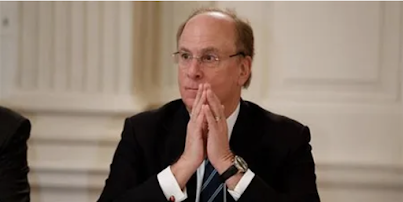Comments from finance/tech guy turned novelist. Author of best seller Campusland. Follow on Twitter: @SJohnston60.
Thursday, February 24, 2022
The Rise of the DEI/ESG Commissars
Monday, February 21, 2022
The Pulitzer Prize Is a Fraud
A couple of years ago, I wrote a piece called Conservatives Don't Win Stuff. It was based on my observation that, well, conservatives don't win stuff.
This is because the Long March through the Institutions (which I also wrote about here) is over. The left now controls them all, including once rock-ribbed GOP redoubts such as the Fortune 500.
Among these many institutions are, of course, the various bodies that have anointed themselves as the "giver of awards." The Motion Picture Academy, the MacArthur Fellows (they of the "Genius" Award), the Rhodes Trust, the Nobel Committee...let's just say you'll find a clean subway car in New York before you find a conservative on one of these boards.
So be it.
But one pestiferous purveyor of these accolades deserves an extra-large, heaping pile of our scorn: the Pulitzer Prize Board.
For background, the Pulitzers have long leaned hard-left. For instance, way back in the 30s, they gave the New York Times Moscow Bureau Chief, Walter Duranty, the coveted award for his propagandistic coverage of Josef Stalin, which included some delightful reportage such as the following, about the kulaks (farmers):
"Must all of them and their families be physically abolished? Of course not–they must be 'liquidated' or melted in the hot fire of exile and labor into the proletarian mass."
Nice.
Duranty also pointedly ignored the biggest story in the Soviet Union during the 1930s, the policy-driven famine that killed tens of millions. His reporting provided intellectual cover for an entire generation of campus-based Marxist wannabes.
Duranty was so awful that the Times itself disavowed the coverage (albeit some five decades later). Can you imagine?
So, the Pulitzer people took back their little prize, right?
Nope.
Despite being formally petitioned by various groups twice, they declined to do so.
What really separates Pulitzer from the pack, though, happened far more recently, when they gave the award to both the New York Times and the Washington Post for each's "deeply sourced' and "relentlessly reported" coverage of the fanciful "Russiagate" scandal.
Of course, we now know, with 100% clarity, that the entire thing was a fraud concocted by Donald Trump's political opponents. There was plenty of reason to think this then, too, but I don't need to rehash all the details of why in this post. If you want some great reporting on just how outrageous this Pulitzer was, I refer you to this excellent piece in the New York Post.
Needless to say, the Times and the Washington Post have not returned their awards, and the Pulitzer Board had not asked for them back. All parties probably think the Russia narrative could have been true, even if it blatantly wasn't.
We're all good here.
But this got me wondering. Who's behind curtain? What kind of people would make such a horrendous mistake and not even attempt to walk it back.
One of the wonderful things about the internet is that it's easy to find out such things.
Unlike the mostly center-left Lovely People who inhabit school boards, about whom I have written, these people are committed progressives. The Pulitzer Board consists of precisely what you'd imagine: a rogue's gallery of academic, journalistic, and NGO leftists. All but one live on the coasts (the sole exception living in coastal aspirant Austin, Texas).
I present to you, the Pulitzer Board:
(Perhaps genuflect as you read these names—these people are very elite and went to very good schools.)
Elizabeth Alexander - Head of hard-left Mellon Foundation, big Obama supporter. Read her tweets here.
Nancy Barnes - Editorial Director, NPR
Lee Bollinger - President, Columbia University
Katherine Boo - former staff writer for the New Yorker and current reporter for the Washington Post.
Neil Brown - former editor of left-leaning Tampa Bay Times. Now runs the Poynter Institute, a journalism school funded in part by George Soros's Open Society Foundation. One principal area of focus is "fact-checking technology." (Cue the irony.)
Nicole Carroll - Editor-in-chief of left-leaning USA Today
Steve Coll - Dean of Columbia Journalism School, the ever-flowing wellspring of liberal journalists.
Gail Collins - Editorial Board, New York Times (Does she get to vote on the Times' own Pulitzers?)
John Daniszewski - Editor at Large for "standards" at the Associated Press. Here's a quote from his bio: "John works with journalists and editors around the world to ensure the highest levels of media ethics and fairness."
One wonders if these people have any self-awareness, any at all.
Steve Engelberg - Editor in chief of lefty online news organization ProPublica. Also won Pulitzers. Worked for NYT for 18 years.
Carolos Lozada - Washington Post book critic, author of "What Were We Thinking: A Brief Intellectual History of the Trump Era." Twitter feed: https://twitter.com/CarlosLozadaWP
Kelly Hernandez - Professor of African American Studies, UCLA. From her bio: "One of the nation’s leading experts on race, immigration, and mass incarceration." Believes we are "wasting money" on policing and incarceration. Watch her here: https://www.youtube.com/watch?v=a1kigeQAG6k.
Aminda Gonzalez: VP and Exec Editor, Simon & Schuster
Kevin Merida - Executive Editor, LA Times
Viet Thanh Nguyen - Professor of English, American Studies and Ethnicity at USC.
Emily Ramshaw - CEO of The 19th, a feminist-oriented news service. Very concerned on Twitter about the shortage of female climate scientists.
David Remnick - Editor of the New Yorker, and author of, among other things, a hagiography of Barack Obama and a recent puff piece on AOC.
Tommie Shelby - Professor of African American Studies at Harvard. Recent speech title: "Afro-Analytical Marxism and the Problem of Race."
Pro tip moving forward: these awards are nothing more than trumped up self-congratulation inside an intellectually fatuous, vacuum-sealed bubble. To the average American, they mean nothing, and nor should they. Ignore them.
Now give me a damn beer.




